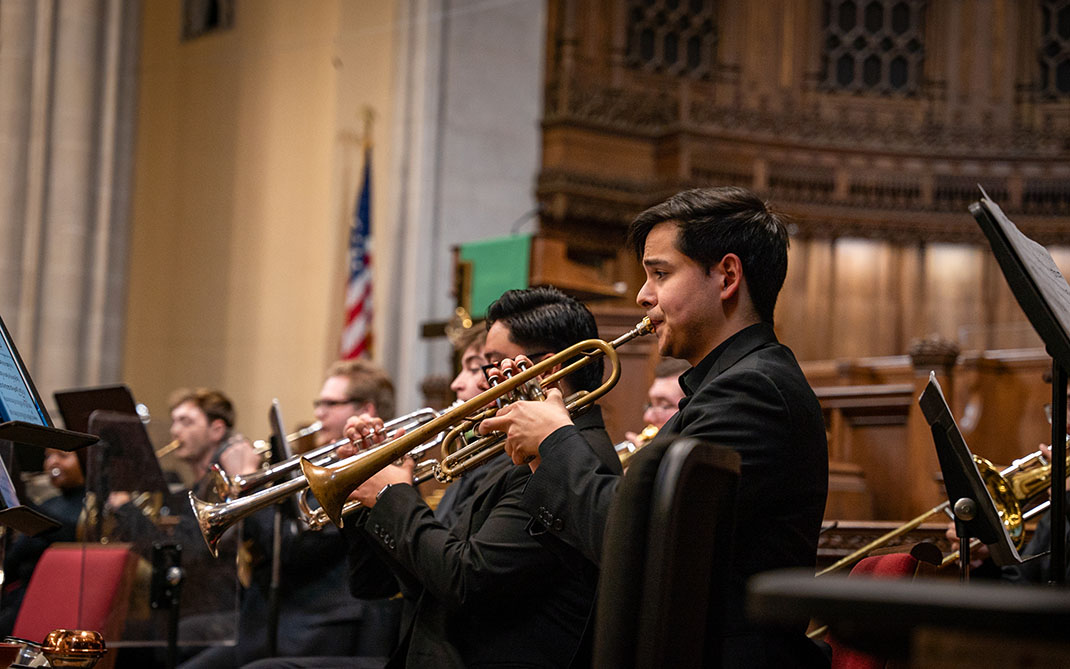Overtime Regulation 623
| Regulation 623 | Approved: February 17, 2011 |
| UNIVERSITY OF NORTH CAROLINA SCHOOL OF THE ARTS Overtime Regulation Regulation 623 |
|
| Source of Authority: | North Carolina Office of State Human Resources |
| Revision Authority: | Chancellor |
| History: | First Issued: February 17, 2011 |
| Related Policies and Regulations: | Overtime, OSP Manual § 4 pp. 79-108; Additional Employment Regulation 601; Improper Activities Reporting Regulation 114; Occasional or Sporadic Employment Regulation 621; On-Call & Emergency Callback Regulation 622; Supplemental Pay Regulation 627 |
| Responsible Offices: | Human Resources Department Payroll |
| Effective Date: | February 17, 2011 |
I. Purpose
This regulation outlines the regulation and procedures for compensating eligible employees for excess hours worked in a workweek.
II. Scope
This regulation applies to probationary, career, and time-limited SHRA employees to whom the overtime provisions of the Fair Labor Standards Act (“FLSA”) apply. The compensatory time provisions of this regulation do not apply to temporary employees; all temporary employees must be paid for overtime as it is accumulated.
III. Definitions
IV. Regulation
A. Time Keeping
1. The UNCSA workweek is Monday 12:01 AM to Sunday 12:00 AM.
2. All hours of work shall be recorded and compensated in units of one-tenth of an hour (i.e. 6 minute intervals).
3. Compensatory time off will be given on the basis of 1½ times the number of excess hours worked during a week.
4. Compensatory time may be accumulated up to a maximum of 240 hours (160 hours straight time).
B. Generally
1. The FLSA status of an employee’s position is determined by the Office of Human Resources.
2. Generally, supervisors shall hold hours worked by an employee to the State’s established 40-hour workweek standard except in those cases in which excessive hours of work are necessary because of weather conditions, necessary seasonal activity, or emergencies as determined by the direct supervisor. Sworn law enforcement employees may work 171 hours in a 28 day cycle before accruing overtime.
3. If an employee works more than the regular scheduled hours on one day, the supervisor may allow or direct the employee to take off an equal amount of time during the same workweek, without charge to leave, so that the total work time does not exceed 40 hours for the workweek.
4. Equal time off may not be taken in a workweek different than the workweek in which the excess time was accumulated.
5. In the event that overtime is paid in dollars, an additional amount equal to 1½ times the employee’s regular hourly rate times the number of excess hours worked shall be added to the base pay.
C. Except under certain conditions, UNCSA pays overtime hours worked in time off as compensatory time, instead of dollars. UNCSA retains the right to determine whether to compensate overtime work by scheduled paid time off rather than by overtime pay.
V. Revision History
A. February 17, 2011 – Adopted by Board of Trustees as part of UNCSA Policy Manual
UNIVERSITY OF NORTH CAROLINA SCHOOL OF THE ARTS
Overtime Procedures
Procedure 623
I. Accounting for Time Generally
A. Each month every SHRA Subject employee must record all hours worked on the employee’s SHRA Subject Employee Time Record.
B. The supervisor must review and approve the hours as accurate by signing the SHRA Subject Employee Time Record
C. All time records must be submitted directly to Human Resources no later than the 5th of each month.
II. Accounting for & Paying Overtime – Mandated by OSP
A. UNCSA pays overtime hours worked in time off as compensatory time, instead of dollars. However, UNCSA recognizes that in those cases in which excessive hours of work are necessary it is both to the benefit of UNCSA and the employee to pay overtime in dollars. In these situations the supervisor may follow the procedures outlined below to request overtime payment in dollars in the employee’s next regular paycheck.
B. All requests to pay hours worked over 40 in monetary compensation must be made in a letter written and signed by the direct supervisor and must be submitted to Human Resources with the monthly time sheet.
C. Should the compensatory hours exceed 240 or otherwise must be paid out, the direct supervisor must request payment of the compensatory time in a letter written and signed by the direct supervisor and submitted with the SHRA Subject Employee Time Record to Human Resources.
III. Accounting for & Paying Compensatory Time – Mandated by OSP
A. Compensatory time off will be given on the basis of 1½ times the number of excess hours worked during a week.
B. Compensatory time may be accumulated up to a maximum of 240 hours (160 hours straight time).
C. Any overtime worked above this the maximum allowable amount of compensatory time shall be paid in the employee’s next regular paycheck.
D. Compensatory time shall be taken before any vacation or bonus leave, except for retirees who may need to exhaust vacation leave prior to retirement.
E. Compensatory time off cannot be denied to an employee unless the compensatory time off will unduly disrupt UNCSA operations.
F. If compensatory time off is not taken within 365 days of being accrued, the compensatory time shall be paid in the employee’s next paycheck.
G. An SHRA Subject employee who leaves UNCSA employment will be paid a lump sum payment for accumulated compensatory time up to 240 hours (160 hours straight time).
H. An employee whose FLSA status changes from subject to exempt must be paid for all accumulated and unused compensatory time off at the time of the status change.
I. Compensatory time earned in one department is not automatically transferred to another department. If the employee transfers to another department within UNCSA, the supervisor of the department to which the employee transfers must sign a document indicating acceptance or rejection of the compensatory time of the employee.
1. If accepted, this time becomes the liability of the new department.
2. Time not transferred to the new department must be paid by the department where the work was performed. The payment must be made prior to the employee transferring to the new department if at all possible.
IV. Conditions of Employment – Mandated by OSP
A. Prior to employment, each successful candidate for UNCSA employment in a position Subject to FLSA must sign Conditions of Employment acknowledging that UNCSA retains the right to determine whether to compensate overtime work by scheduled paid time off rather than by overtime pay.
B. Agreement to this is a condition of employment; failure or refusal to sign such agreement will prevent employment of that person.
C. This signed form shall be a part of the employee’s personnel file and shall be kept for at least three years following that person’s separation from State employment.





